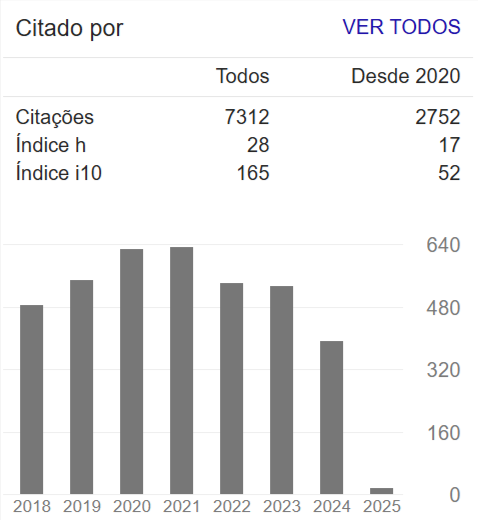Experimental study of a double slope solar still for water potabilization in the semiarid of Paraiba, Brazil
Abstract
Water scarcity has significantly affected the northeastern region of Brazil. Although this region does not have a great availability of drinking water for human consumption, there are brackish waters that, when undergoes desalination process, become suitable for human consumption. A double tilt tray solar desalination was used to obtain standard drinking water. The objective of this work was to analyze the thermal performance and water quality before and after the desalination process. The raw water came from three wells of rural communities, Escurinha do Meio Farm (Well P1), Poço da Pedra Farm (Well P2) and Escurinha de Baixo Farm (Well P3) in the city of Juazeirinho - PB. An average drinking water production of 158.3 mL.m-2.day-1 was observed for an average solar radiation index of 1,005.4 W.m-2. The physicochemical parameters of raw and desalinated water were monitored, with significant reductions, mainly in the sodium content - 98.33%, 99.92% and 97.83% - and electrical conductivity - 97.79%, 99.13% and 97.69% - for P1, P2 and P3 wells, respectively.

















